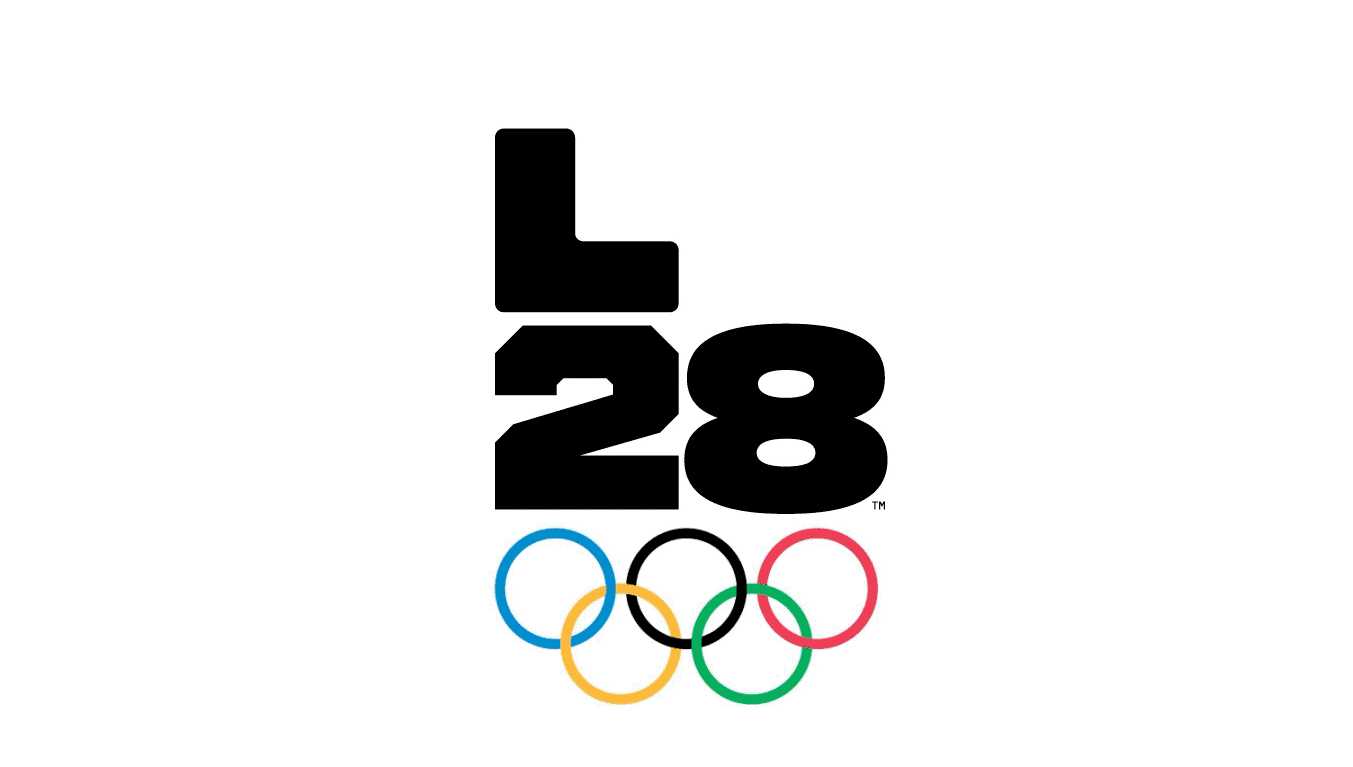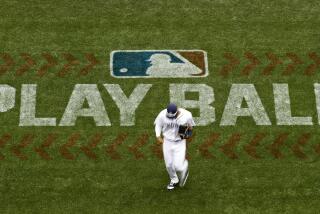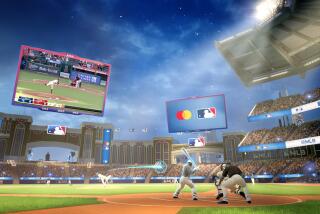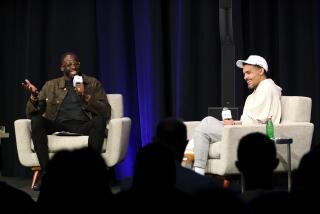Sports social media was changed by the pandemic. The new norms are here to stay
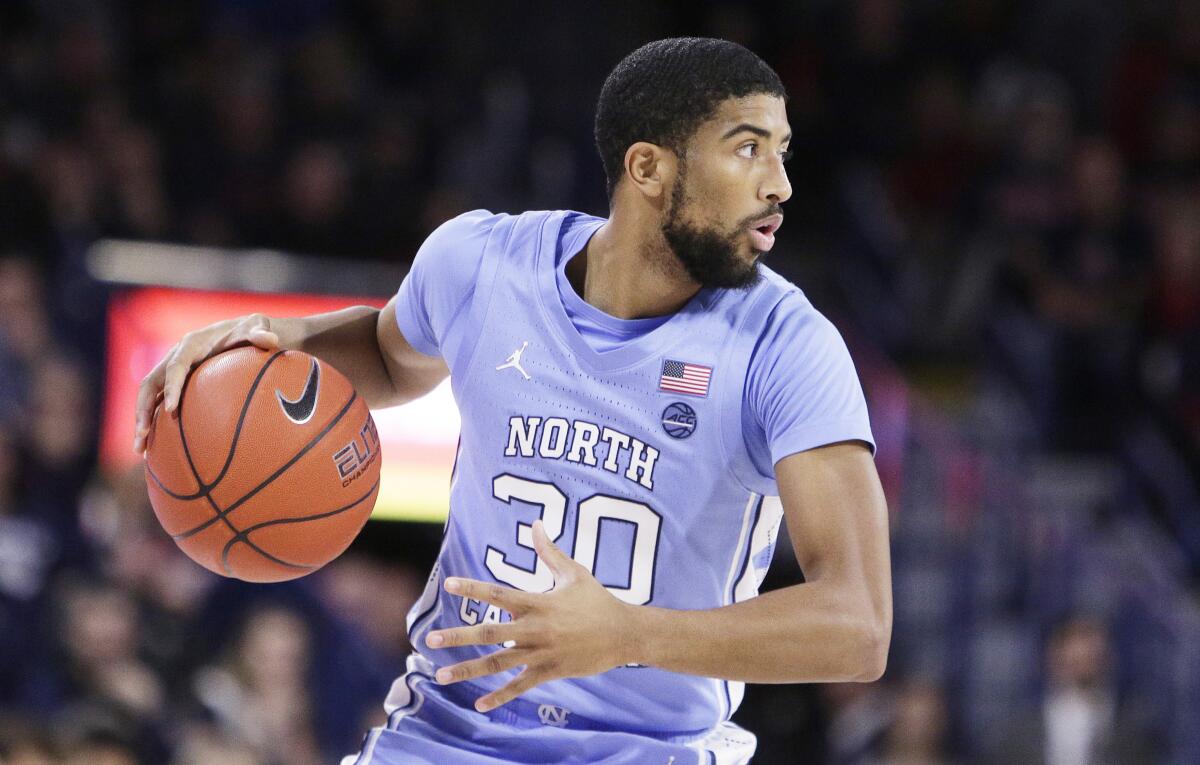
- Share via
Kenny Smith got the idea while watching his son in the backyard.
It happened earlier this summer, when the two-time NBA champion and TNT broadcaster saw his son, K.J., a senior guard at North Carolina, dribbling a ball outside in front of his laptop.
“I just thought he was doing a YouTube video or something,” Smith recalled. “He says, ‘I’m on a [live video] call with my middle school and high school.’ He had about 100 kids.”
It sparked an idea. With Smith’s usual summer basketball camp out of the question amid the COVID-19 pandemic, he realized a virtual one could work instead. Thus, the “Jet Academy” was born — an online platform where such NBA and WNBA stars as Kemba Walker, Victor Oladipo, Trae Young, Brittney Griner and Breanna Stewart host live-streaming instructional sessions and players can submit videos and receive feedback throughout the year.
“I felt, why should their development stop because of a pandemic?” Smith said. “With rec centers and gyms being closed, if I just love to hoop, why can’t I get a workout? Why can’t I get a half-hour workout and I’m going to work side by side with these NBA and WNBA greats? Where else am I going to get that experience?”
The concept was an easy sell, Smith said, because “everyone has already been on all of these conference live calls.” At a time the sports world has had to adapt, Smith’s product is among the many innovations beginning to sweep across the industry — an example of what might last long after the virus subsides.
“Is there still a component of [being in-person] that you need? Of course,” Smith said. “But is there a component of this that’s needed? One hundred percent. I think the pandemic brought things that we didn’t realize we needed.”
Entrepreneur Sean Leary has a similar story.
A former college baseball pitcher who played at Pepperdine, Orange Coast College and Oral Roberts, Leary was well-versed with the elusive and exasperating experience of college recruiting. After graduating in 2015, he began working on a product he hoped could re-imagine the process. He founded a social networking platform called Sports Thread, a free online service designed almost like a LinkedIn for the recruiting world.
Allyson Felix, Gabby Douglas and Billie Eilish are among the athletes, artists and celebrities who have created logos for the 2028 L.A. Olympics.
“We are simply providing a utility to create connections within the industry,” Leary said. “Our goal is to apply a proven concept to a new industry, rather than to reinvent the wheel in terms of how someone engages with the social network.”
Salinas Palma High football player Oki Hautau said the site helped him receive several FCS scholarship offers. “It’s like a way of expressing myself. It’s been actually really fun to me,” he said. “I can just be me. I can post whatever I want. I get a lot of feedback from athletes … who will comment, ‘Keep up the work,’ or ‘keep grinding.’ It helped motivate me to keep doing it.”
In the early days of Leary’s start-up, there were times his life felt like a scene out of the movie “The Social Network.” Investor pitches in Silicon Valley. Brainstorming sessions on how to monetize his idea. Endless hours spent turning a concept into reality.
This summer has become an affirmation of that approach. As in-person recruiting came to a halt, Sports Thread saw session engagement rise by 40%. Having attracted more than 300,000 users and 400 college programs, especially among Olympic sport and small-conference teams, it cracked the top 50 on the Apple App Store rankings.
Leary’s takeaway: “When COVID hit, I think there were a lot of athletes that went, ‘Oh my gosh, I have to find a new way.’ ”
The same held true for professionals, who got creative trying to stay in shape during months-long layoffs back in the spring. Dodgers outfielder Joc Pederson found a unique answer, using an artificial intelligence program called Tonal, an interactive home gym that tracks movement and controls output in real time.
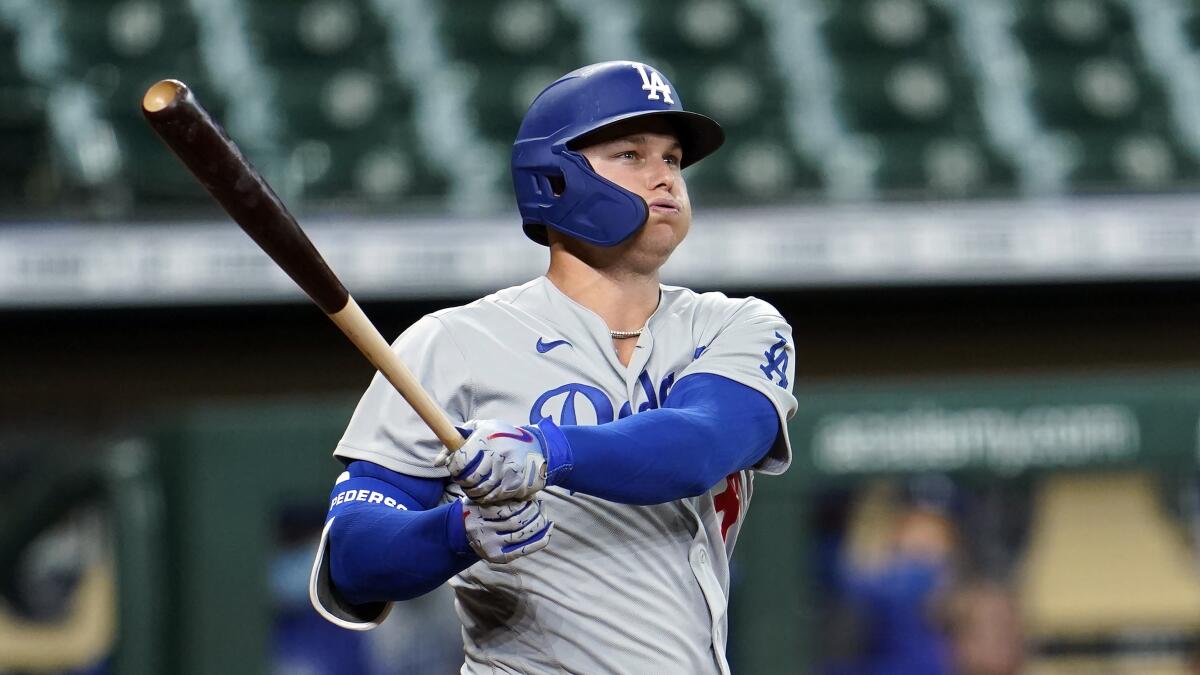
“It’s a really cool system,” said Pederson, who worked out almost daily from his garage. “You pick out what kind of workout you want to do. More cardio-based or upper body or lower body, core. Then the trainer comes and the AI system calibrates what weight you should be pushing at. It’s pretty gnarly.”
At a front-office level, Andrew Friedman, the Dodgers’ president of baseball operations, has found the digital world to have some advantages as well.
“I joked a week or two after things shut down in March, I hadn’t heard of Zoom a week before that. Now it couldn’t be more embedded in my life,” he told SportsNet LA. “There’s definitely some things that as we reflect back on this year that I think have been a good thing. I think it’s something that, whenever we get through this, there’s going to be some things we want to adopt going forward.”
And even the fan experience is transforming. With race fans largely stuck at home this summer, for example, NASCAR saw the usage of its interactive app spike, with new users gravitating toward immersive features like live in-cam dash cams and radio communication feeds in addition to watching the race on linear TV.
“It’s providing fans with the tools that they would expect to see on race day,” said Wyatt Hicks, managing director of NASCAR Digital Media. “It’s based on information fans have given us over time, and we just try to iterate on that as we get new things that we can add in.”
As with the rest of society, the question seemingly isn’t whether sports will be altered when the virus subsides, but how different the landscape will look. It’s a question Leary has been contemplating a lot this summer, growing ever-more confident the changes are making a permanent impact.
“I think it will continue well past coronavirus and the shutdown, just like how businesses were forced to work from home for three months,” he said. “When a huge shakeup happens to the status quo and you have to adopt new things, you find those things work.”
More to Read
Go beyond the scoreboard
Get the latest on L.A.'s teams in the daily Sports Report newsletter.
You may occasionally receive promotional content from the Los Angeles Times.

